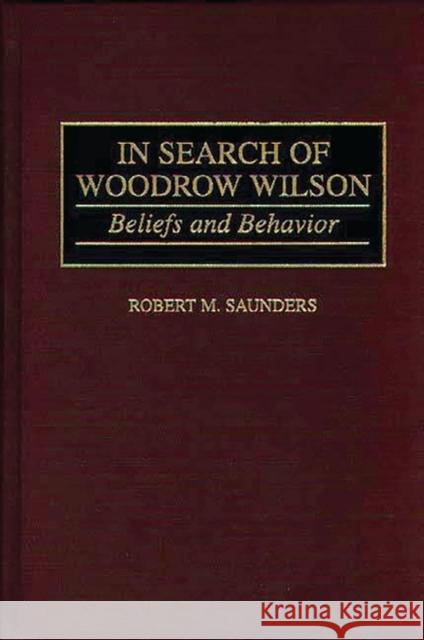In Search of Woodrow Wilson: Beliefs and Behavior » książka
In Search of Woodrow Wilson: Beliefs and Behavior
ISBN-13: 9780313305207 / Angielski / Twarda / 1998 / 288 str.
Saunders complements an understanding of the origins and evolution of Woodrow Wilson's beliefs, particularly the notion of stewardship, with an appreciation of the strengths and weaknesses of his leadership and the historical context within which he pursued his dreams. Based upon a thorough and systematic analysis of the available primary sources, this work explores Wilson's relationship with his parents, his wives, and his professional and political colleagues. It examines his conduct of domestic and foreign policy from 1913-1921, as well as his inner turmoil over professed beliefs which conflicted with the demands of leadership. This detailed account records the social background, beliefs, and behavior of one of America's most controversial and significant 20th century leaders.
Woodrow Wilson is perceived as the epitome of the modern idealist who took the United States into World War I to make the world safe for democracy; however, this book will show that this view of Wilson is fraught with more than the usual distortions. With the end of the Cold War and the publication of the full body of Wilson's papers, it is now possible to examine Wilson in a new and more complete light. The tensions between Wilson's private ambitions and his public role refute the main stereotype of him as an idealist.











